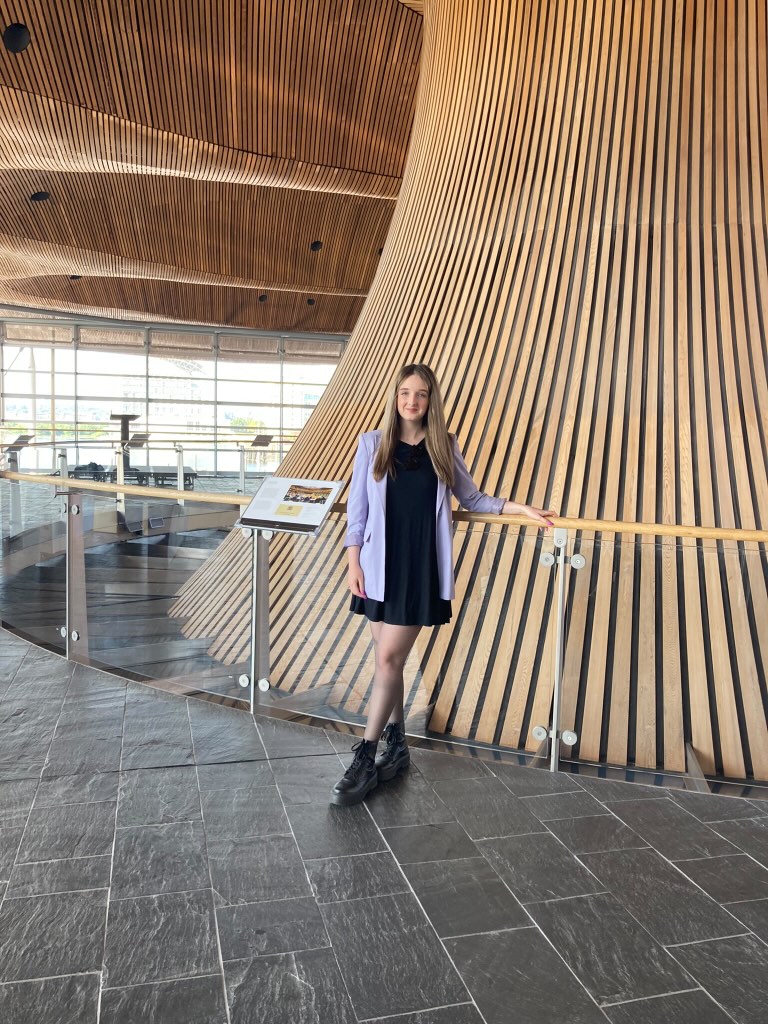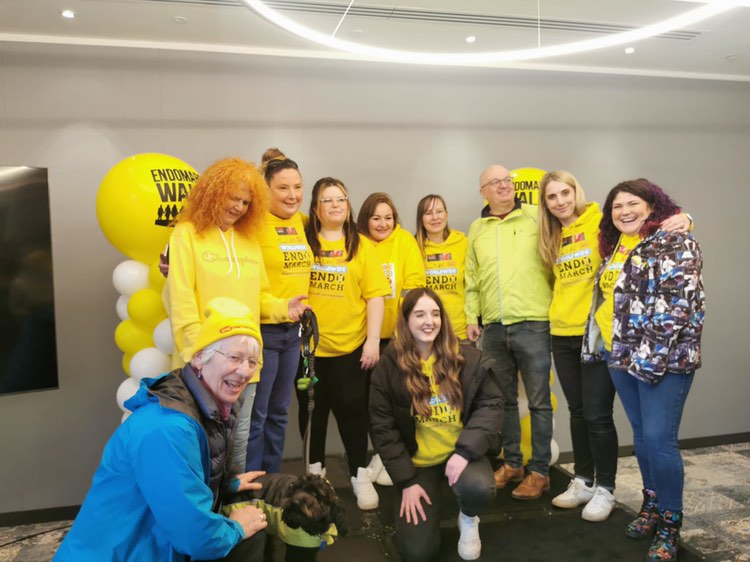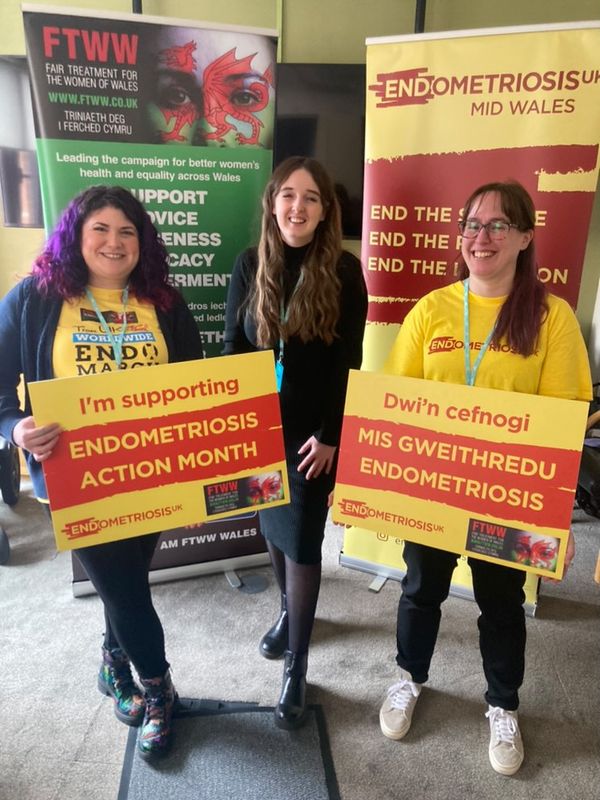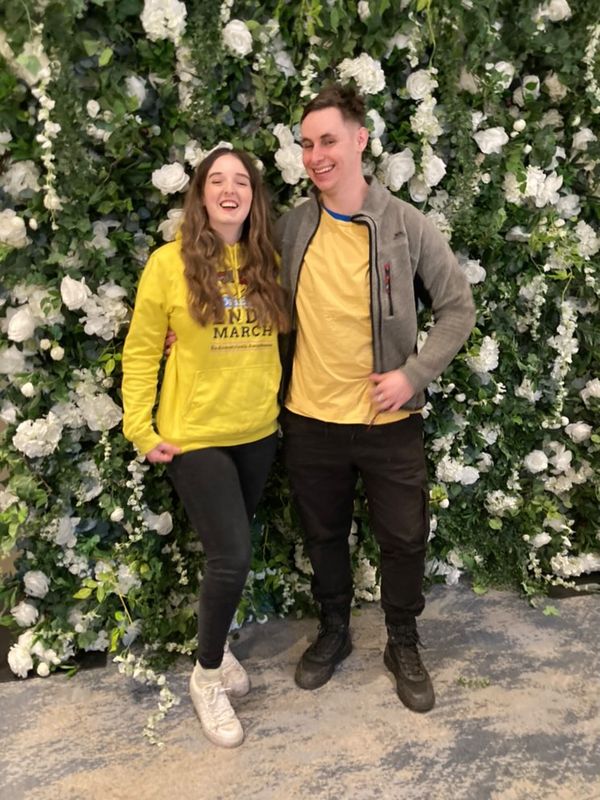Catching up with a Swansea Alum: Rachel Joseph (with Ian Goh)
This post is part of an occasional series of chats with alumni/ae of our degree programmes involving Ancient World subjects.
In the dog days at the end of 2022, I (Ian) sat down for a catch-up with recent alumna Rachel Joseph, who had not long before won the ‘Young Volunteer of the Year’ Award at the Wales Council for Voluntary Action’s Welsh Charities Week Awards. The citation for that prestigious accomplishment noted that Rachel is a ‘powerhouse campaigner’ for improving access to women’s health services, in particular endometriosis treatment. This blogpost, accordingly, is sneaking in at the end of this year’s Endometriosis Action Month.
Rachel had intended to obtain a degree in Psychology, but she says that she had a ‘gut feeling’ about Ancient History at Swansea. Encouraged at a taster lecture to do her degree ‘because you love it, and it doesn’t have to be where you end up’, she signed up for something she had never had the opportunity to study before, despite her love for learning. Meanwhile, it was in 6th form that Rachel had had her first endometriosis surgery, an event which, when it recurred, had the potential severely to disrupt her studies. That indeed came to pass in the third year of Rachel’s degree when she had to undergo multiple hospital visits. Through it all, Swansea staff worked with Rachel to help manage her university attendance and complete her assessments to the highest standard. In particular, her final-year dissertation focused on the representations of women in ancient medical texts, including such facets as amulets and curse tablets, as well as the gynaecological knowledge displayed by male practitioners such as Soranus. She drew from her own experience to brilliant effect.
After university, Rachel worked in educational recruitment, but was mindful of the situation in Wales where, in October 2019 there was only one endometriosis specialist nurse to cater for the (at least) 150,000 women of the country affected by the disease. As a regular volunteer for Fair Treatment for the Women of Wales (FTWW), Rachel became a Patient Advocate, using her own experience to inform her work in raising awareness and creating change. She co-produced and coordinated the development of the training packages for endometriosis nurses, joined the Disability rights taskforce, advised the Welsh government’s task-and-finish group on menstrual disorders, and represents FTWW at the Welsh Government’s Period Dignity Roundtable. Through her advocacy work, Rachel has signposted FTWW and the Endo.Cymru website to healthcare professionals, championing the need for services to include the patient voice and co-producing resources. To that end, Rachel has now taken up a PhD studentship in the School of Psychology at Cardiff University, focusing on supporting the timely diagnosis of endometriosis and improved shared decision-making with GPs, through the use of Endometriosis.Cymru and the symptom reporting tool listed on the site. This PhD will upskill a Third Sector patient voice, while making a positive and impactful contribution towards improving endometriosis patient care.
So, Rachel has come full circle to psychology, but her time studying the ancient world at Swansea was not wasted. As she says: ‘my undergrad degree really taught me the importance of writing academically, and how to construct a persuasive argument. You have to deal with the impact of qualitative data and bias with respect to past perspectives, and that’s been a focus of so much of my work on patient voice. History isn’t cut off from the present, it shapes it. We’ve got to learn from the past to change the present.’ At her lowest points, also, Rachel admits to really struggling during university with pain management, but as she says: ‘through building relationships with my lecturers I learned how to be able to advocate for myself. Uni taught me how to open up when I was feeling so alone, and knowing how to find the help you need is such a big part of the battle’. As ableism is so engrained in our culture, we must help to break through the stigmas surrounding invisible and chronic illness, where we’re discouraged from asking for resources for disability, or only able to declare it by talking to the right person. ‘My Swansea lecturers were there for me when it counted.’
We hope that anybody reading this, who sees something of your own experience here, might know that you are not alone, and be prompted to advocate for better public and medical understanding. Together we can fight for increased access to treatment and pain management regimes.
My colleagues and I wish Rachel every continued success as she embarks on her PhD!




